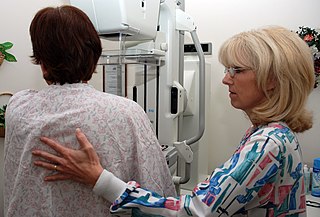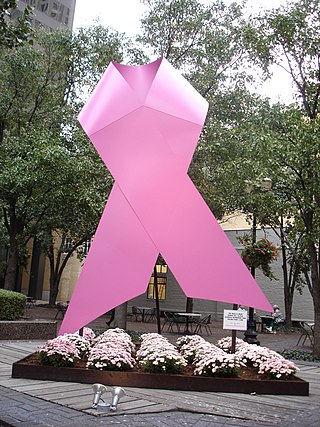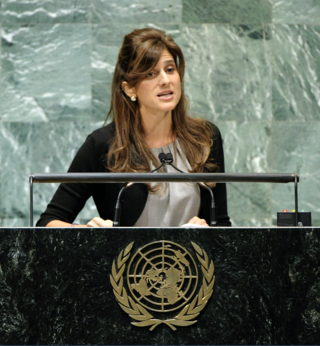Campaigns
ACS CAN's advocacy efforts are targeted at specific cancer-related issues.
Access to healthcare
Like the American Cancer Society, ACS CAN is devoting a significant portion of its resources [4] to raising public awareness of shortcomings in the US health care system from the perspective of cancer patients. Recently, the Patient Protection and Affordable Care Act, supported by the American Cancer Society and ACS CAN, was signed into law by President Barack Obama and has multiple provisions which will gradually take effect over several years. Under the Affordable Care Act, patients are protected from discrimination by insurance companies against people with pre-existing conditions, such as cancer, and insurance companies can no longer drop a person if he or she gets sick. These provisions ultimately reduce cost burden on patients and their families. Further, the law prohibits companies from denying coverage to children with pre-existing conditions, eliminates lifetime benefit limits and annual benefit limits that can cause sudden termination of health care coverage, and allows children to stay on their parent’s health plan until the age of 26. Also, if a person has been uninsured for at least 6 months and have a health condition, he or she may be eligible for the Pre-existing Condition Insurance Plan. Seniors also will receive many preventative services for free such as cancer screenings. [5] According to the ACS CAN, these rulings will expand access to quality health care for cancer patients, decrease cost burden, and refocus health care emphasis on prevention. [6]
Tobacco regulation
ACS CAN supports efforts to grant the Food and Drug Administration regulatory control over tobacco products. Their efforts include tobacco use prevention and cessation programs, increasing tobacco taxes, and enacting smoke-free laws. ACS CAN states that tobacco use prevention, especially in a "new generation of young smokers", would be the most effective way to reduce exposure to smoke and reduce health risks, including lung cancer. [8] However, states have recently cut funding for tobacco use prevention programs by 12 percent this year, adding up to a 36 percent funding cut over the past four years.
Under the 1998 Tobacco Master Settlement Agreement, states are to receive $246 billion in tobacco industry payments from tobacco companies to compensate for smoking-related health care costs over 25 years. [9] In the Fiscal Year 2012, states will collect $25.6 billion in revenue in tobacco taxes and legal settlements from the 1998 settlement. However, only $45.6 million, or 1.8 percent of that collection will be spent on programs to prevent or stop tobacco use. The CDC recommends $3.7 billion for tobacco cessation and prevention programs, meaning that the allotted $45.6 million is only 12 percent of the recommendation. Of the 50 states, 33 states and the District of Columbia are spending less than a quarter of the recommended amount. Connecticut, Nevada, New Hampshire, Ohio, and the District of Columbia did not allocate any funding for tobacco prevention programs this year. Only Alaska is meeting or exceeding its CDC recommendation for the year by spending $10.8 million. [10]
Recently the organization has made a major push against electronic cigarettes. There is currently no research which links electronic cigarettes and cancer. [11]
National Breast and Cervical Cancer Early Detection Program (NBCCEDP)
ACS CAN actively seeks additional funds for the NBCCEDP, which provides breast and cervical cancer screenings for low-income women throughout the United States.
The program, started in 1991, is administered by the CDC and in addition to breast and cervical cancer screenings, it provides follow-up services and information to low-income women between 50 and 64 who are at most risk to breast and cervical cancer. This includes uninsured, underinsured, and racial and ethnic minority women. Services provided under NBCCEDP include clinical breast examinations, mammograms, pap smears, pelvic examinations, diagnostic testing for abnormal results, and treatment referrals. Since 1991, the program has provided more than 9.8 million breast and cervical cancer screenings, and diagnosed more than 52,694 breast cancers, 2,856 invasive cervical cancers, and 136,837 premalignant cervical lesions. [12]
ACS CAN works to reauthorize and increase funding for NBCCEDP since it has been at risk for recent budget cuts. Although NBCCEDP has served over 3.9 million women, the program serves less than one in five eligible women at the current funding levels. [13] Some states have been forced to reject people who would be eligible for free mammograms and Pap smears due to state budget cuts. In 2009, 14 states cut budgets for free cancer screenings: Colorado, Minnesota, Connecticut, South Carolina, Utah, Missouri, Washington, Ohio, Massachusetts, Arkansas, Montana, Illinois, Pennsylvania, and Alabama. [14]
In 2006, Senators Barbara Mikulski and Kay Bailey Hutchison introduced a bill, supported by ACS CAN, to allow for greater program flexibility and a funding increase of $45 million allowing an additional 130,000 eligible women access to NBCCEDP. [15] In 2007, President George W. Bush reauthorized NBCCEDP, setting the fiscal year 2010 funding level at $250 million, but Congress provided $215 million. [16] Further, NBCCEDP faces a 10 percent cut in the CDC budget, resulting in 40,000 fewer underserved women being screened. [17]
Judicial Advocacy Initiative
ACS CAN and ACS file "friend of the court" briefs in cases that may affect the cancer community. [18]
Plant It Pink
ACS CAN’s campaign, "Plant It Pink", aims to raise awareness of the fight against breast cancer and to raise funds by planting thousands of Pink Impression tulip bulbs around America. Several states have participated in this event including Illinois, Iowa, Minnesota, Kansas, Missouri, Nebraska, Ohio, Oklahoma, South Dakota, and Wisconsin. [19] The goal is to plant Pink Impression bulbs throughout the states to honor the men and women who will be diagnosed with cancer this year. 800 Pink Impression tulip bulbs were planted in the shape of a 20-foot long ribbon at Ingalls Cancer Care Center in Tinley Park, Illinois, by Ingalls Cancer Research Ambassadors. The tulip bulbs were planted in the fall and are expected to bloom this spring. [20]
Events
Each year, ACS CAN hosts a training and lobbying event in Washington, D.C., for top tier volunteers called Leadership Summit & Lobby Day. More than 500 volunteers and staff meet with their lawmakers during this event to talk about cancer issues.
In 2002 and 2006, ACS CAN hosted massive lobbying events in Washington, D.C., called Celebration on the Hill. In 2002 and 2006, they hosted 4,000 and 10,000 cancer patients, survivors and advocates as part of this event, respectively. In 2006 ACS CAN successfully met with the office of every member of the United States Congress, an unprecedented achievement for a nonprofit health organization. Attendees were treated to live music, public speakers, and a host of onsite activities, as well as the erection of the American Cancer Society Wall of Hope, a temporary monument to cancer survivorship that covered two city blocks.

The Papanicolaou test is a method of cervical screening used to detect potentially precancerous and cancerous processes in the cervix or, more rarely, anus. Abnormal findings are often followed up by more sensitive diagnostic procedures and, if warranted, interventions that aim to prevent progression to cervical cancer. The test was independently invented in the 1920s by the Greek physician Georgios Papanikolaou and named after him. A simplified version of the test was introduced by the Canadian obstetrician Anna Marion Hilliard in 1957.

Cervical cancer is a cancer arising from the cervix. It is due to the abnormal growth of cells that have the ability to invade or spread to other parts of the body. Early on, typically no symptoms are seen. Later symptoms may include abnormal vaginal bleeding, pelvic pain or pain during sexual intercourse. While bleeding after sex may not be serious, it may also indicate the presence of cervical cancer.

The American Cancer Society (ACS) is a nationwide non-profit organization dedicated to eliminating cancer. Established in 1913, the society is organized into six geographical regions of both medical and lay volunteers operating in more than 250 Regional offices throughout the United States. Its global headquarters is located in the American Cancer Society Center in Atlanta, Georgia. The ACS publishes the journals Cancer, CA: A Cancer Journal for Clinicians and Cancer Cytopathology.

Preventive healthcare, or prophylaxis, is the application of healthcare measures to prevent diseases. Disease and disability are affected by environmental factors, genetic predisposition, disease agents, and lifestyle choices, and are dynamic processes that begin before individuals realize they are affected. Disease prevention relies on anticipatory actions that can be categorized as primal, primary, secondary, and tertiary prevention.

The Canadian Cancer Society is Canada's largest national cancer charity and the largest national charitable funder of cancer research in Canada.

Human papillomavirus (HPV) vaccines are vaccines that prevent infection by certain types of human papillomavirus (HPV). Available HPV vaccines protect against either two, four, or nine types of HPV. All HPV vaccines protect against at least HPV types 16 and 18, which cause the greatest risk of cervical cancer. It is estimated that HPV vaccines may prevent 70% of cervical cancer, 80% of anal cancer, 60% of vaginal cancer, 40% of vulvar cancer, and show more than 90% efficacy in preventing HPV-positive oropharyngeal cancers. They additionally prevent some genital warts, with the quadrivalent and nonavalent vaccines that protect against HPV types HPV-6 and HPV-11 providing greater protection.
The Bonnie J. Addario a Breath Away from the Cure Foundation (ABAFTC), sometimes styled Bonnie J. Addario Lung Cancer Foundation (BJALCF), is a foundation created by Bonnie J. Addario in 2005 to eradicate lung cancer through research, early detection, education, prevention and treatment. It is made up of volunteers, people in the medical profession, and lung cancer survivors. The Foundation has three goals: 1) to raise public awareness about the relative lack of attention given to lung cancer in biomedical research, 2) to help lung cancer patients navigate the healthcare system to receive the best available care, and 3) to enlist the aid of physicians and biomedical scientists in transforming cancer research. The Foundation is based in San Carlos, California.

Breast Cancer Action (BCAction) is a U.S.-based grassroots education and activist organization driven by and supporting people living with breast cancer. It was founded in 1990 by Elenore Pred, Susan Claymon, and Linda Reyes. Based in San Francisco, BCAction is known for understanding breast cancer not as an individual crisis, but a public health emergency, and for their commitment to social justice. The organization's mission is to achieve health justice for all women at risk of and living with breast cancer. BCAction is known for its Think Before You Pink campaign, launched in 2002, which encourages consumers to ask critical questions before buying pink ribbon products and holds corporations accountable for pinkwashing.

Breast Cancer Awareness Month (BCAM), also referred to in the United States as National Breast Cancer Awareness Month (NBCAM), is an annual international health campaign organized by major breast cancer charities every October to increase awareness of the disease and raise funds for research into its cause, prevention, diagnosis, treatment, and cure.

The breast cancer research stamp (BCRS) is a semi-postal non-denominated postage stamp issued by the United States Postal Service, priced in 2011 as eleven cents higher than the standard first-class letter rate. The surplus above the price of the first-class stamp is collected by the United States Postal Service (USPS) and allocated to the National Institutes of Health (NIH) and the Department of Defense (DoD) for breast cancer research. If a person used this stamp exclusively, and mailed one letter per day for a year, the resulting donation would amount to US$40.
The "war on cancer" is the effort to find a cure for cancer by increased research to improve the understanding of cancer biology and the development of more effective cancer treatments, such as targeted drug therapies. The aim of such efforts is to eradicate cancer as a major cause of death. The signing of the National Cancer Act of 1971 by United States president Richard Nixon is generally viewed as the beginning of this effort, though it was not described as a "war" in the legislation itself.
The Family Planning Services and Population Research Act of 1970 is the only federal grant program dedicated to providing individuals with comprehensive family planning and related preventive health services. It was signed into law under President Richard Nixon on December 24, 1970.

Cancer screening aims to detect cancer before symptoms appear. This may involve blood tests, urine tests, DNA tests, other tests, or medical imaging. The benefits of screening in terms of cancer prevention, early detection and subsequent treatment must be weighed against any harms.

Breast cancer awareness is an effort to raise awareness and reduce the stigma of breast cancer through education about screening, symptoms, and treatment. Supporters hope that greater knowledge will lead to earlier detection of breast cancer, which is associated with higher long-term survival rates, and that money raised for breast cancer will produce a reliable, permanent cure.
The Alvin J. Siteman Cancer Center at Barnes-Jewish Hospital and Washington University School of Medicine is a cancer treatment, research and education institution with six locations in the St. Louis area. Siteman is the only cancer center in Missouri and within 240 miles of St. Louis to be designated a Comprehensive Cancer Center by the National Cancer Institute (NCI). Siteman is also the only area member of the National Comprehensive Cancer Network, a nonprofit alliance of 32 cancer centers dedicated to improving the quality and effectiveness of cancer care.
Steven Coughlin is an American epidemiologist and author who received international attention for his Congressional testimony in support of U.S. veterans. At the time of this entry, he is a tenured Professor of Epidemiology at Augusta University in Augusta, GA. Coughlin has published over 366 scientific articles and was the lead author of the first and second editions of Case Studies in Public Health Ethics, and lead editor of the first, second, and third editions of Ethics and Epidemiology. In addition, Coughlin was the author of The Principle of Equal Abundance, The Nature of Principles, and the first and second editions of Ethics in Epidemiology and Public Health Practice: Collected Works. Most recently, Coughlin was co-editor of Handbook of Community-based Participatory Research and Black Health in the South.

Princess Dina Mired is a Jordanian humanitarian and health activist. She is a leading global advocate for cancer control and non-communicable diseases (NCDs). She was the President of the Union for International Cancer Control (UICC) from 2018 to 2020 and was the first Arab Muslim elected to lead in such a prestigious global post. Princess Dina is the former Director-General of the King Hussein Cancer Foundation. Princess Dina Mired was also recognized as one of the 100 Influential Women in Oncology by OncoDaily.

Lisa C. Richardson is an American physician who is the Director of CDC Division of Cancer Prevention and Control. She is responsible for the Colorectal Cancer Control Program, the National Breast and Cervical Cancer Early Detection Program, the National Comprehensive Cancer Control Program, and the National Program of Cancer Registries.
Karen Patricia Williams is an American professor of women's health who is director of the Martha S. Pitzer Center for Women, Children and Youth in the College of Nursing at Ohio State University. Williams is a NIH funded scholar with expertise in community-based participatory research, health services research and women's health policy. She is interested in the intersection of cardiovascular disease and cancer risk in women, as well as how families and various culturally specific networks can be engaged in cancer prevention and control.
The Oral Cancer Foundation, sometimes abbreviated to OCF, is an American, IRS-registered, 501(c)(3) non-profit organization, which focuses on oral and oropharyngeal cancer related issues and public awareness of the disease.













